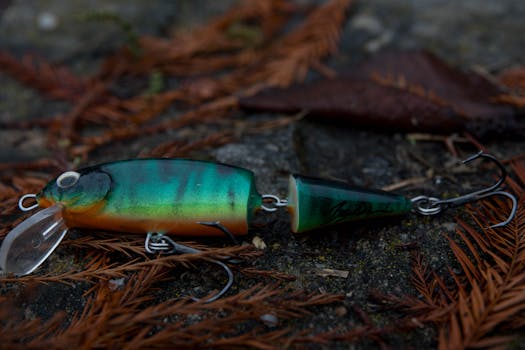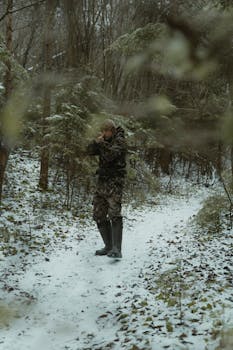Building effective hunting resources is vital for both novice and experienced hunters. It brings about a deeper understanding of nature and enhances the overall experience. In this guide, we will explore various strategies to establish and improve your hunting resources.
Through practical tips and essential insights, you’ll learn to develop a robust set of hunting resources tailored to your preferences and environment. This means not only focusing on the technical aspects but also on sustainability and conservation efforts.
Get ready to discover a complete roadmap for creating your hunting resources. This journey will not only empower you within the field but also connect you more profoundly to the outdoor world.
Understanding Hunting Resources
To effectively build hunting resources, one must first understand what qualifies as a hunting resource. This includes everything from physical tools to knowledge about wildlife behavior. These resources can shape your overall hunting success.
Awareness of the local ecosystem, game species, and hunting regulations is crucial. Additionally, learning about different terrains and climates helps guide your hunting strategies. Such knowledge lays the groundwork for further resource development.
Moreover, hunting resources can vary greatly depending on the region. Make an effort to tailor your approach based on local conditions. This adaptability will lead to better hunting outcomes and a more enjoyable experience.
Lastly, consider community resources. Joining local hunters groups or forums can be beneficial. Sharing knowledge with seasoned hunters can greatly enhance your understanding of hunting techniques and safety practices.
With that foundation established, let’s delve deeper into specific areas of focus for building effective hunting resources.
Essential Hunting Gear
Having the right gear can make a significant difference in your hunting effectiveness. From clothing to tools, each piece carries its importance. Choose equipment best suited to your hunting circumstances.
Key items include firearms or bows, ammunition, and hunting knives. These tools should match your skill level and hunting preferences. Investing in quality over quantity pays off in performance and safety.
Clothing also plays a vital role. Weather-appropriate attire that camouflages with the environment will enhance your stealth. Furthermore, consider the materials used; breathable, durable fabrics can elevate comfort levels.
Other gear to consider encompasses binoculars, game calls, and backpacks. These items facilitate tracking, navigation, and carrying essentials. Each component contributes to an enjoyable and effective hunt.
To summarize, the right hunting gear is fundamental. It will not only support your activities but also enhance your overall experience. Properly maintained gear also ensures longevity and reliability in the field.
Learning Local Wildlife
Understanding the behavior and habits of local wildlife is pivotal for successful hunting. Hunters must study animal movements, feeding spots, and mating seasons. This intel positions you advantageously in the field.
Field guides can provide extensive information about game species. Invest time in studying their behaviors and habitats. This background knowledge will significantly enhance your hunting strategies and decisions.
Utilizing various resources such as wildlife documentaries and podcasts can also be helpful. These mediums often present observations from experienced hunters, connecting practical experience with theoretical knowledge.
In addition, keeping a hunting journal can help track sightings and experiences. Reflecting on each hunt improves skills and strategies for future outings, making each trip a learning opportunity.
Fostering a deep understanding of local wildlife will provide long-term benefits. Enhanced knowledge will translate to better hunting outcomes while promoting ethical practices in your hunting efforts.
Environmental Considerations
Being aware of environmental impacts is essential for sustainable hunting. Responsible practices not only protect wildlife populations but also maintain biodiversity. Understanding your impact will help preserve hunting for future generations.
Focus on habitat preservation, knowing that you should leave areas as you found them. Be cautious about fires, waste, and disruptions to animal homes. Mindfulness contributes significantly to environmental health.
Joining conservation groups can enhance your environmental knowledge. Such organizations often provide resources and information on local ecosystems and sustainable practices. Collaborating with these groups encourages responsible hunting.
Implementing the “Leave No Trace” principles aids in minimizing your footprint. This simple motto can be a guiding philosophy while enjoying nature and hunting. Respecting wildlife ensures everyone can enjoy these experiences in the future.
In conclusion, integrating environmental considerations into your hunting resources is a win-win approach. It creates a balance between leisure and conservation, ensuring the sport thrives sustainably.
Networking with Other Hunters
Building connections with fellow hunters enriches your experience. Networking opens doors to shared resources, knowledge, and even physical gear. These relationships can create lasting benefits in your hunting endeavors.
Consider joining local hunting clubs and associations, as they facilitate community interaction. Such platforms enable hunters to exchange tips, resources, and experiences, further enhancing each individual’s knowledge base.
Online forums and social media groups also provide excellent networking opportunities. These platforms allow for broader communication, expanding your hunting circle far beyond local relationships. Take advantage of these digital resources.
Moreover, mentorship is vital in the hunting world. Learning from seasoned hunters accelerates your skills and knowledge. These mentors can guide you through challenges and help develop your unique style.
Networking provides not just support but creativity to your hunting resources. Building a community enhances the overall hunting experience, making it enriching and enjoyable for everyone involved.
Utilizing Technology
Modern technology can greatly enhance your hunting resources. Helpful applications can aid in everything from weather forecasting to wildlife tracking. Embracing these tools will improve your overall effectiveness.
Smartphone apps exist for mapping areas and identifying game animal sounds. Using these tools provides critical information right at your fingertips, allowing for better planning and execution of your outings.
Additionally, trail cameras have become increasingly popular among hunters. They allow you to monitor wildlife movement while you’re away. This data is invaluable for determining prime hunting times and locations.
GPS technology helps ensure you remain oriented in unfamiliar terrain. Utilizing devices like handheld GPS units can improve navigation and safety during your hunts. Knowing your surroundings will enhance confidence and effectiveness.
In summary, integrating technology into your hunting routine offers numerous advantages. It streamlines processes and provides information that can transform your hunting strategies for the better.
Continuous Education and Practice
Continuous education plays a crucial role in honing your hunting skills. Participating in workshops and seminars keeps your knowledge fresh and up to date. Embracing a lifetime learning mindset will yield long-term benefits.
Practicing regularly is equally important. Whether it’s at a shooting range or participating in simulated hunting experiences, the more time you invest, the better you’ll become. Consistency fosters confidence and proficiency.
Furthermore, learning about advancements in hunting techniques can enhance your effectiveness. Innovative methods and tools are constantly emerging, making it essential to stay updated and adaptable.
Finally, consider seeking feedback from your peers. Honest assessments help identify areas for improvement, enabling targeted development. Constructive criticism is a gift that can facilitate accelerated growth.
In conclusion, prioritizing continuous education and practice is key to success. Committing to improvement ensures you evolve as a hunter, enhancing your experiences and enjoyment in the great outdoors.
Conclusion
In summary, building hunting resources requires a multifaceted approach. From acquiring essential gear to engaging in continuous education, each aspect contributes to an enriching hunting experience. Understanding nature, networking with other hunters, and considering environmental factors further enhance your efforts.
By integrating technology effectively, you stay current with hunting requirements and strategies. Remember, hunting is not just an activity; it’s a journey into the outdoor world that can deeply connect you with nature.
Fostering a commitment to improvement and stewardship ensures that future generations will enjoy hunting as much as we do today. Embrace these principles, and you’ll create a lifetime of enriching hunting experiences.


